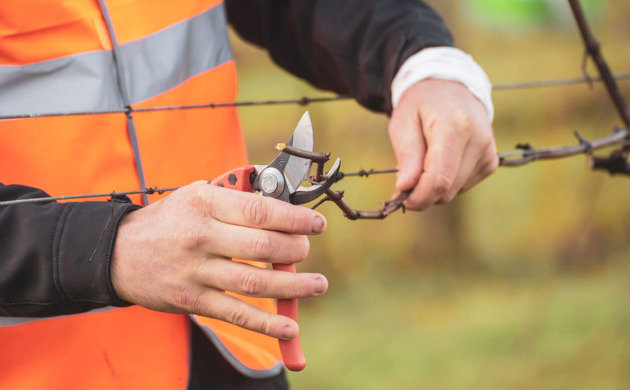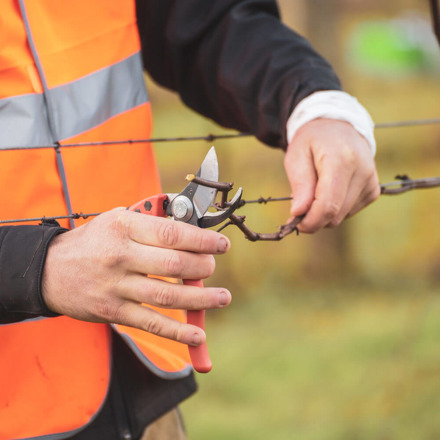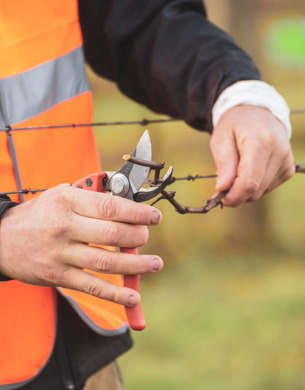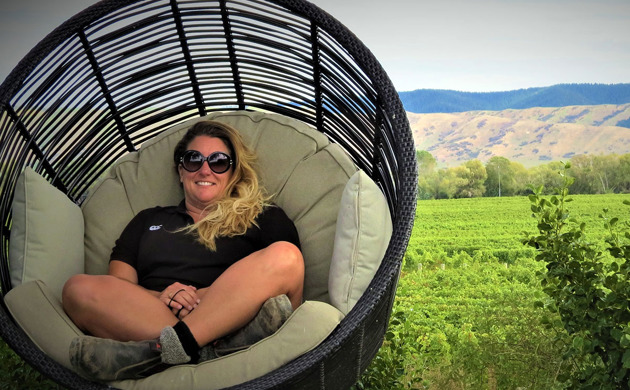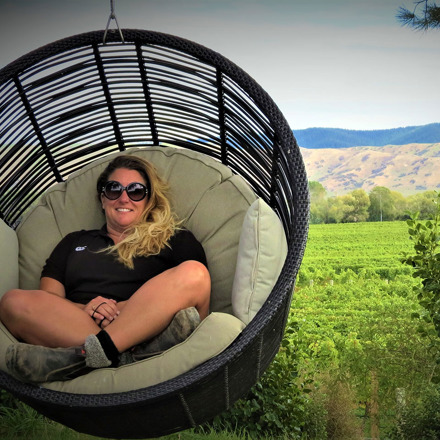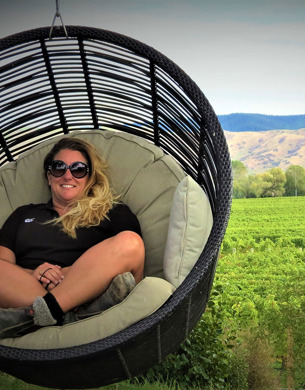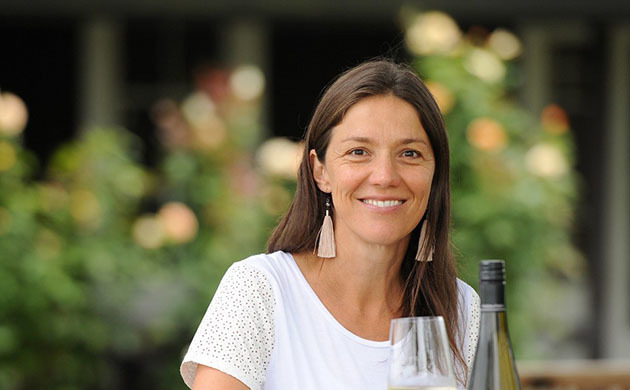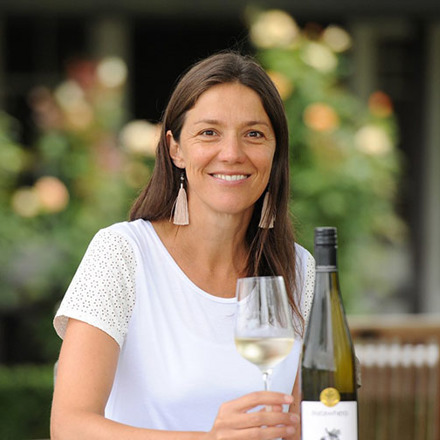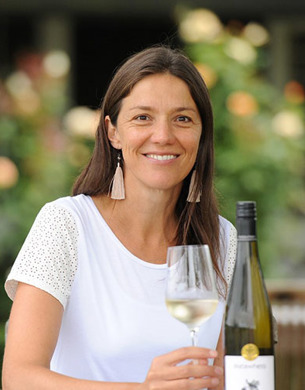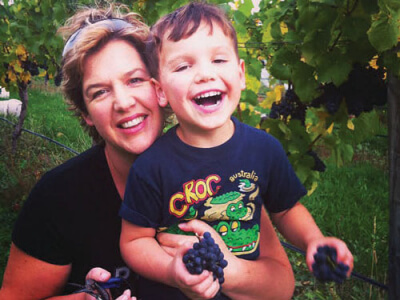
With roots to the North Canterbury area that go right back to the 1840s, when her family were the first to bring sheep to the South Island to establish the Stonyhurst station, Angela didn’t originally see herself as following a wine path. Instead, she left school to undertake a degree in politics. “Which is pretty much what drove me to drink,” she jokes.
Supporting herself during her studies by working in hospitality, the passion for flavour came to the fore.
“I met people who were into food and wine, although I had grown up with family understanding food. We were all just flavour junkies.”
With no course available in New Zealand at that time in the early 90s, Clifford decided to head to Roseworthy, South Australia to study Wine Business. Included in the course were papers on viticulture and oenology.
“I didn’t go with any decision to go one way or the other, but I have always been a reasonably good communicator. I think it just naturally evolved that that was where the biggest opportunities were, where I had a point of difference.”
With a post-grad degree under her belt, Clifford went on to be involved in nearly every aspect of the wine business, outside of the vineyard and winery.
She worked in wine retail, she set up events, worked for Liquorland Corporate putting together corporate offerings for clients in Sydney. She established the Stonewall Cellar, an exclusive club membership offering for Rockford Wines in the Barossa. “I worked anywhere a communicator was needed.”
Initially, she had intended to come back to New Zealand but meeting her now husband Nick Gill while at Roseworthy, meant her stay in Australia lasted 12 years.
“Nick was studying dryland agriculture at Roseworthy, but I convinced him to move to the dark side of viticulture,” she says. And despite New Zealand being her home country, she says it was Nick who was the instigator for her return to her homeland.
“We were pretty much at the top of our game in Australia. I had just established the Barossa Farmer’s Market, I was working for Rockford. Nick was the vineyard manager for all of Penfolds and Seppelts in the Barossa Valley, which was a pretty epic job. Then a friend of ours mentioned that someone was looking for someone to establish Greystone Vineyard here in New Zealand and would we consider it.”
Clifford says they initially laughed at the idea but did decide to come over and check it out.
“Nick just fell in love with the country, the hunting and fishing. He felt viticulture was really challenging here and was so excited about establishing this incredible vineyard in a really unique space. It captured his imagination.”
So in 2004, Clifford, Nick and six-month-old Ruby arrived in North Canterbury.
While Nick began establishing the vineyard, Clifford began working part-time for Greystone and established events such as Day in the Vineyard and the Cornerstone Club.
“As my babies got older, (she has three children) I set up Waipara Valley NZ and began to get involved in regional promotions. Out of that came events such as In Praise of Riesling, Summer of Riesling and Forage North Canterbury.”
While Waipara had a promotional group, Clifford said it had lacked a marketing focus. “The region was struggling to define itself, its point of difference. It was quite political with all the different players – similar to the story of every new wine region in the world. It didn’t lack quality wines or lack amazing people. It just lacked imagination of how to bring it all together.”
Being small, she admits Waipara Valley was never going to fit into the Marlborough, Hawke’s Bay or Central Otago mould when it came to being defined. The region had to do something different, it had to think outside the box.
“But being small gave us the freedom to be different, it allowed us to do things differently. That is probably the biggest legacy of those events, In Praise of Riesling, Summer of Riesling and Forage North Canterbury.”
It was 2011 when her wine company Tongue in Groove became an entity.

“We had been in the wine industry long enough by then to see every iteration of it. Everything from Penfolds to tiny Rockford that used ancient equipment. But the one thing we hadn’t done was have skin in the game. We had always worked for other people, we had never had our own label,” Clifford explains. “So we would get drunk and talk about it and make plans. Then the Christchurch earthquake happened and it was a carpe diem moment.”
Clifford and Nick were actually in the Christchurch CBD when the earthquake happened. “We were very lucky to walk away with our lives. We just decided that it was time to get on with it. We weren’t going to wait around for another 10 years. There were some really key people that surrounded us that made it happen, that included Lynnette Hudson, Mat Donaldson and Charles Reid in those early days. So Tongue In Groove was born out of the Christchurch earthquakes in that moment of carpe diem.”
It is now literally a company of two, Clifford and Lynnette Hudson as a winemaker. Special parcels of fruit are bought in from around the Waipara Valley region, with the wines made at Muddy Water by Lynnette. Depending on the year, they make four wines; a Riesling, an orange wine from aromatics, Pinot Noir and Chardonnay.
“One of the things that is quite unique about Tongue In Groove,” Clifford says, “is it has a very female story woven through it. I don’t think there are many wine companies in New Zealand that have both a female principal and a female winemaker. Both Lynnette and I feel quite strongly about women in the wine industry. Lynnette is an amazing winemaker, and we both feel very proud to be a part of that group.”
But it is not her gender that Clifford believes has played a major role in her career path.
“The one thing that defined my career was having three children. That has put me in places I wouldn’t necessarily have ended up, because I had to find things to do when I wasn’t working full time. I had to find jobs that suited my role as a mother. So more than thinking about what would I have achieved if I was a man, I think the question here is what would have happened if I hadn’t had children? There are so many positives for me about having children. It has made me see the world in a completely different way. I think one of my big strengths is collaboration and collectiveness. I like to think of myself as an enabler or a connector. That is a fairly important thing when you have children, to learn those lessons. Having children can change your horizons in a really positive way. I have had to find collaborators, whether that has been my husband, my wine community or my food community. I have had to find people to help me and I see huge value in connecting the right people. I also feel very strongly about paying it forward, so I have a group of younger people that I feel very strongly about helping whenever I can because that is what was offered to me.”
These days Clifford is the CEO of Eat New Zealand, a role that brings together all her skills as a communicator, organiser, flavour junkie and event manager.
“I feel like I am a gastronationalist. Our offerings are so unique, so special, and we have been so bad about telling that story. We have become a list of exported ingredients. What I bring to the game is an understanding of New Zealand wine and how successfully that has vertically integrated itself and told its story internationally. Perhaps New Zealand food has missed some tricks.
The challenge now is for New Zealand wine to embrace New Zealand food and find interesting collaborations around that moving forward. That has become a very important part of my life. I feel very passionate about that and it is a once in a lifetime opportunity to have influence in that area.”
Given her successes of the past, it is very much a case of watch this space.
This story was originally published in New Zealand Winegrower magazine.




